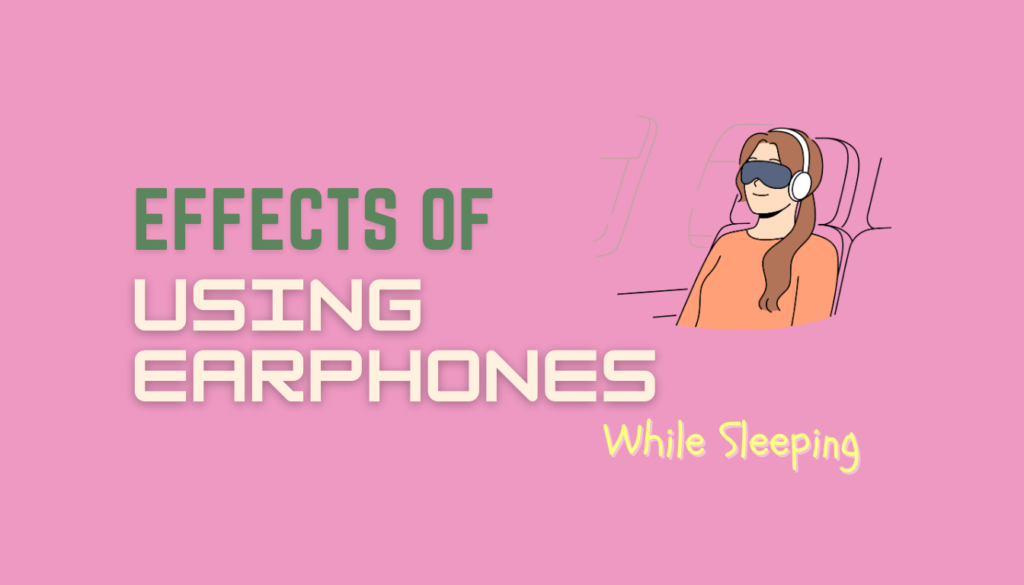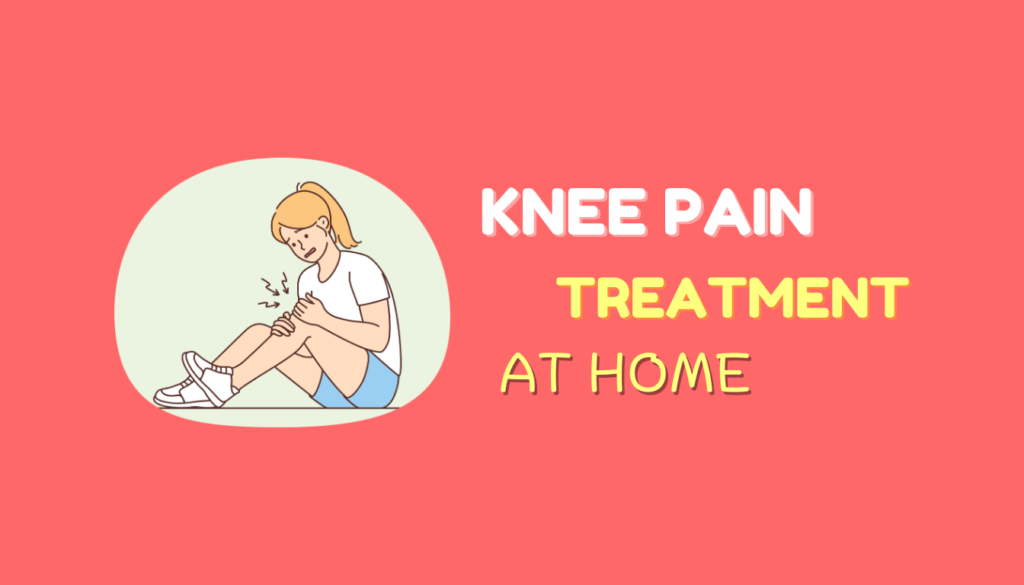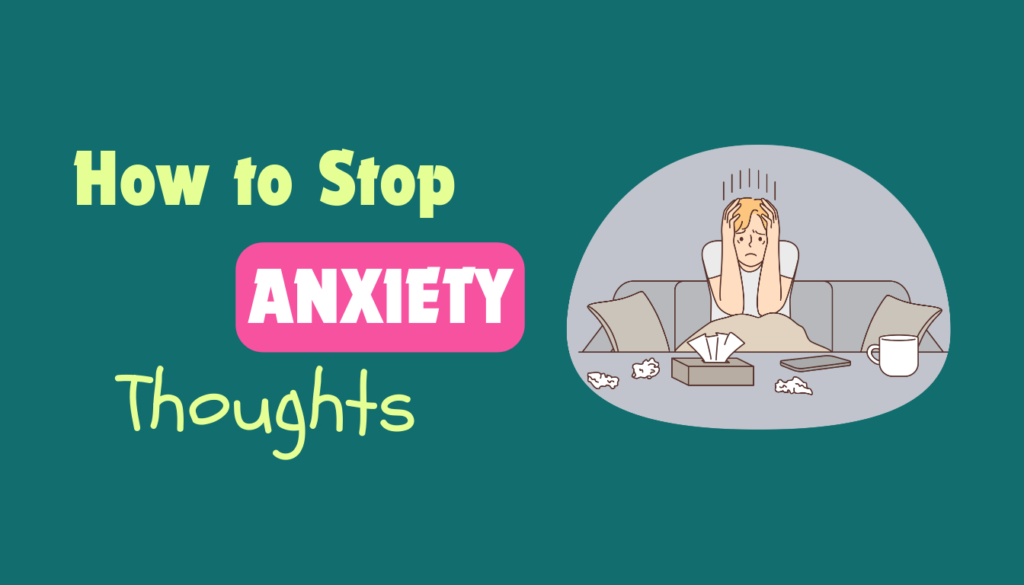Do you fall asleep listening to music or white noise through your earphones?
It seems harmless, but it can affect your sleep and health. Let’s look at how using earphones at night can change things and how to sleep better and safer.1
Listening to earphones overnight can lower your sleep quality and damage your hearing. It might even cause tinnitus (a ringing sound in your ears)1.
On one side, it can make you relax by blocking out noise and boosting the happy hormone serotonin, helping you sleep.
But, it has downsides like listening at too-high volumes, ear discomfort, and not hearing alarms or other crucial sounds.
To ensure your sleep is sound and safe, take some steps. Keep the volume low, about 60% of the highest level1.
Pick comfy earphones or headphones that fit well and maybe go for wireless to avoid cables messing up your sleep.1.
You might find an app that slowly turns the sound down as you fall asleep useful, too. And if any problems persist, talking to a doctor is always a good idea.
Why People Use Earphones While Sleeping
People use earphones while sleeping for various reasons. They do it to block external noise and find relaxation and stress relief. Earphones help create the best pre-sleep headspace.1
Sounds like sirens, traffic, or snoring can disturb sleep a lot. Earphones help people block these sounds. This makes the sleeping environment more peaceful.1
They also promote relaxation and stress relief at bedtime. Earphones are useful for those with tinnitus to cover the ringing. This way, they can get better sleep quality.1
Stress also plays a role in tinnitus. So, some use earphones for stress relief during their night routine.1
Using earphones helps people prepare for sleep. It supports them in relaxing and unwinding. Especially for those with sleep problems, or wanting to enhance sleep habits, it can really be beneficial.1
Potential Benefits of Using Earphones While Sleeping
Using earphones while sleeping offers many advantages. First off, it blocks out noises from outside, which makes sleep more peaceful.2
Also, listening to soothing sounds, white noise, or music you like can calm your mind. This helps your body make more serotonin, making you feel better and fall asleep easier.2
Studies even suggest that earphones can be a big help for people with insomnia or PTSD. This is because the right music can soothe the mind and make sleeping more refreshing.2
By using earphones, you can avoid being disturbed by loud noises outside as you sleep.1 This way, you can get a more restful sleep.
Plus, the relaxing sounds can boost your serotonin levels. This leads to a brighter mood and helps you fall asleep sooner.2
If you have trouble sleeping due to insomnia or PTSD, music through earphones might help. It offers a calming effect, making your sleep quality better.2
Risks and Side Effects of Using Earphones While Sleeping
Using earphones while sleeping has its dangers. It can cause earwax buildup, ear infections, hearing loss, brain damage, and necrosis.
Earphones push earwax deeper, leading to discomfort and more wax.1 This can bring on ear infections because moisture and bacteria get stuck in your ear.
Listening at high volumes is bad too. It can go over the 85 decibel safety limit.1 This might damage nerves and make you hear less over time.1
Plus, the electrical signals from earphones might harm your brain cells somehow.1
Necrosis is a rare but serious risk too. It’s when cells in your ear canal start to die because they get less blood.
This can make the skin in your ear turn black or brown.1 It usually happens when the earphones are too tight and not the right fit.
So, being careful with earphones is crucial for your hearing health and general well-being.
Knowing the dangers helps us use earphones while sleeping carefully. It’s all about making smart choices for our health.
Tips for Safe Use of Earphones While Sleeping
When sleeping with earphones, make sure the volume is at a safe level, like around 60% of the max. This way, sounds are clear but not too loud.1
Listening over 60 decibels could hurt your hearing with earphones in.
It’s best to use earphones less and not to sleep with them on. Always take them out before you sleep.1
Wearing in-ear headphones a lot can make your ears feel bad and cause infections.1 For sleep, over-the-ear headphones are more comfy and safe.1
After use, clean and store your earphones in a safe spot. This stops them from getting dirty and causing ear problems.1 These easy steps help you use earphones in bed safely, keeping you healthy.
Alternatives to Earphones for Sleeping
Using an external speaker instead of earphones is a better choice for sleep. It’s because it doesn’t press on your ears. Alternatives to earphones for sleeping are:
- External speakers: They let you hear sound without putting anything inside your ears directly.3
- Sleep headbands: These go around your head and have headphones built-in. They make listening while sleeping more comfy.4
Some earbuds are made just for sleeping. They’re more comfy than regular ones.3 These special earbuds reduce the pressure on your ears, making it easier to sleep with them.3
Plus, tech for sleep like earbuds and noise-hushing gadgets is always getting better. They aim to make your sleep quality better.3
Earphones are good for tuning out noise and helping you relax. But, alternatives to earphones for sleeping like speakers or sleep headbands are safer.
They don’t have the possible issues that come with using things inside your ear.4
Importance of Good Sleep Hygiene
Quality sleep is vital for our health and well-being. It involves keeping a regular sleep time, a calm bedtime routine, and reducing noise.
These practices greatly boost our sleep quality. Using earphones or other ways to cut noise is good, but you should use them safely and not too much to dodge bad side effects.
Having a fixed sleep time and avoiding screens that emit blue light before sleep can adjust our body clocks for better sleep quality.
Also, doing calming activities like light stretching or listening to soft music helps us relax for a good sleep.
It’s key to lessen anything that disturbs us, such as loud noises or an uncomfortable sleep setup, to make a great space for sleep.
Listening to stuff with earphones or speakers helps shut off sounds and set a peaceful vibe for sleep.
However, it’s vital to use them carefully and not too often. Loud sounds, over 60 decibels, can mess with our sleep and harm our hearing in the long run1.
Keep the sound gentle and pick the best headphones or speakers to make the most of listening without hurting our sleep habits.
When to Consult a Medical Professional
If using earphones while sleeping causes severe pain or sleep problems, talking to a medical professional is wise. This could be an audiologist or an ENT specialist.1
They will check your condition and suggest the right treatments. They might offer tips on how to use earphones safely or find other ways to sleep better.
Ear issues, hearing problems, and sleep disorders need a health expert’s attention. They can figure out what’s really going on.
This ensures your ears and sleep stay healthy. You’ll get advice on how you can safely use earphones or look into other choices.5
If earphones are affecting your sleep or making you worry, it’s time to talk to a medical professional. They are there to help you.
They will guide you on safely using earphones. And, they can provide treatment. This way, you can enjoy your earphones worry-free.1 5
Earphone Safety Guidelines
To safely use earphones when sleeping, it’s vital to follow some guidelines. Keep the volume at a low, safe level, about 60% of the max sound.
Most people can listen at 85 decibels for up to eight hours with no harm. But, if the volume goes higher, listen for a shorter time.
For every 3 decibels more than 85, cut listening time in half. Listening to 88 decibels is safe for only four hours.1
Pick earphones or headphones that are comfortable and fit properly to avoid pain.
In-ear headphones might cause discomfort and infections when worn for a long time.
Over-the-ear headphones are usually more comfortable.
Wireless choices are better to prevent tangling and the risk of being hurt by wires while sleeping.1 2
Remember, earphones can block emergency sounds. So, use them carefully and maybe lower the sound as you drift off.
Using headphones with a special app that lowers audio as you sleep can help.
For safe sleeping, consider Kokoon’s Nightbuds. They’re wireless, comfortable, and have audio fading features and various earbud sizes.2
Keep the earphone safety guidelines in mind. They include setting the volume, finding a good fit, and staying aware of emergencies. Enjoy the perks of using earphones for sleep without risks to your health.1 2
Conclusion
Using earphones at night can be helpful. They block out loud sounds and help with relaxation. They can even make your sleep better.6 But, it’s very important to use earphones the right way.
Don’t forget about the possible risks. These include hurting your hearing, getting ear infections, or having trouble sleeping.
To stay safe, follow the safety tips and use the right kind of earphones. Also, think about other ways to improve sleep.
Doing this lets you benefit from using earphones while sleeping. You won’t harm your health.7 If you have any ongoing problems, it’s smart to talk to a doctor.
In short, earphones can be good for sleep. But, you must be careful. Use them wisely to get the best outcomes without the bad effects.
With the right steps and focusing on good sleep habits, you can sleep well and stay healthy.
Source Links
- https://health.clevelandclinic.org/sleeping-with-headphones
- https://kokoon.io/en-us/blogs/bufferzone/sleeping-with-headphones-earbuds
- https://www.accqsleeplabs.com/blog/sleeping-with-earbuds-everything-you-need-to-know
- https://www.cnet.com/health/sleep/headphones-for-sleeping/
- https://vnhsmirror.com/221560/current-events/headphones-are-killing-your-brain/
- https://pubmed.ncbi.nlm.nih.gov/35315781/
- https://www.sleepadvisor.org/listening-to-music-while-sleeping/





